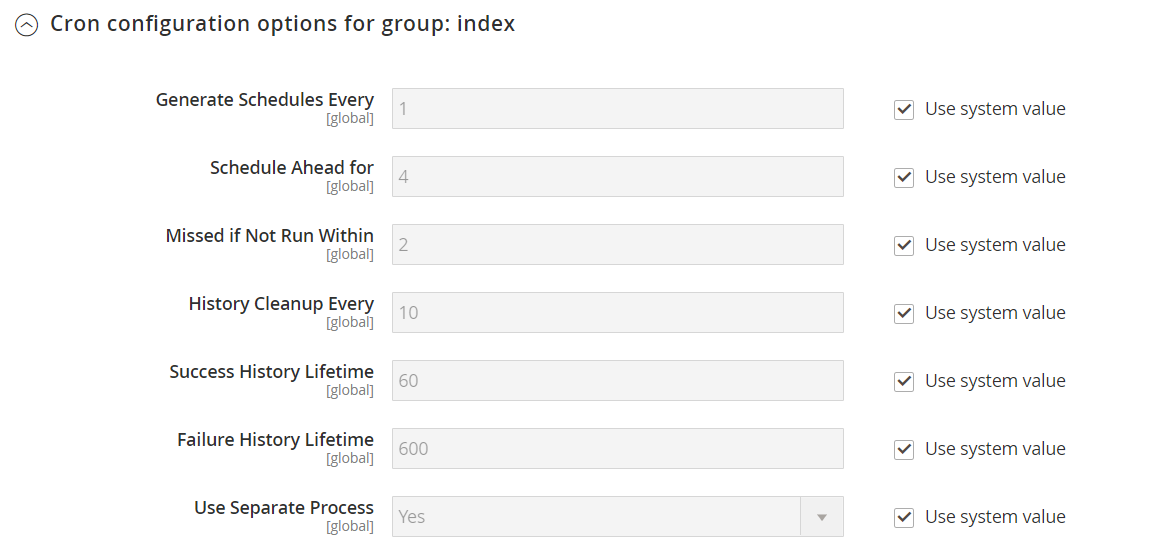Cron (Scheduled Tasks)
Magento performs some operations on schedule by periodically running a script. You can control the execution and scheduling of Magento cron jobs from the Admin. Store operations that run according to a cron schedule include:
In addition, you can configure the following to run according to a cron schedule:
- Order System Grid Updates and Reindexing
- Pending Payment Lifetime
Make sure that the base URLs for the store are set correctly, so the URLs that are generated during cron operations are correct. See Set up cron jobs in the developer documentation.
Configure Cron
-
On the Admin sidebar, go to Stores > Settings > Configuration.
-
In the left panel, expand Advanced and choose System.
-
Expand
 the Cron section.
the Cron section. Cron (Scheduled Tasks)
Cron (Scheduled Tasks) -
Complete the following settings for the Index and Default groups.
The settings are the same in each section.
Generate Schedules Every Defines how often the schedule is generated (in minutes). Schedules are stored in the database. Schedule Ahead for Defines how far in advance cron jobs will be scheduled (in minutes). For example, if this setting is set to 10and the cron runs, cron jobs will be scheduled for the next 10 minutes.Missed if not Run Within Defines the time (in minutes) that, if the cron job is not run after its scheduled time, it cannot be run, and its status is set to Missed.History Cleanup Every Defines the time (in minutes) that the history of ended tasks is cleared from the database. Success History Lifetime Defines the time (in minutes) for which the history of cron jobs with a Successfulstatus remain in the database.Failure History Lifetime Defines the time (in minutes) for which the history of cron jobs with an Errorstatus remain in the database.Use Separate Process Defines whether all cron jobs from the group are run in a separate system process. Options: Yes / No  Cron Group Index
Cron Group Index -
When complete, click Save Config.